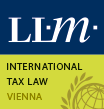Veronika Daurer
Veronika Daurer is an international tax law expert at the Austrian Ministry of Finance and deputy head of the department for international tax law. As such she participates in tax treaty negotiations, regularly deals with the interpretation of tax treaties, is in charge of transfer pricing questions and also represents the Republic of Austria as a delegate in different working parties of the OECD. Before that, she studied international business administration and business law at WU Vienna (Vienna University of Economics and Business). After her graduation she started working as a teaching and research associate at the Institute for Austrian and International Tax Law (WU) where she wrote her doctoral thesis on “Tax Treaties and Developing Countries” and received a Doctor’s degree. She has been working for a Big Four company as a tax advisor specialising in corporate tax and international tax law for a couple of years until she joined the Austrian Ministry of Finance. Further, she is an external lecturer at WU Vienna and regularly publishes on issues of international tax law in journals, books and legal commentaries.Courses:
Special Features of the UN Model Convention
The United Nations Model Double Taxation Convention between Developed and Developing Countries is widely used in the negotiation and administration of tax treaties by developing (and some developed) countries among the United Nations’ 193 nation membership. The Model’s differences from the OECD Model Convention are something that all those dealing with developing countries, or coming from such countries, should be aware of. The general reservation in the UN Model of more taxing rights to the country where economic activity occurs and less to the country of residence of the company earning returns from those activities is particularly relevant in current debates about where value is created and how the profits it creates should be taxed. This lecture will also outline current work related to the UN Model in the areas of transfer pricing, taxation of the extractive industries, the taxation of technical services, the taxation of the digital economy, including the new digital services article recently incorporated in the 2021 update of the Model.
Back to list

